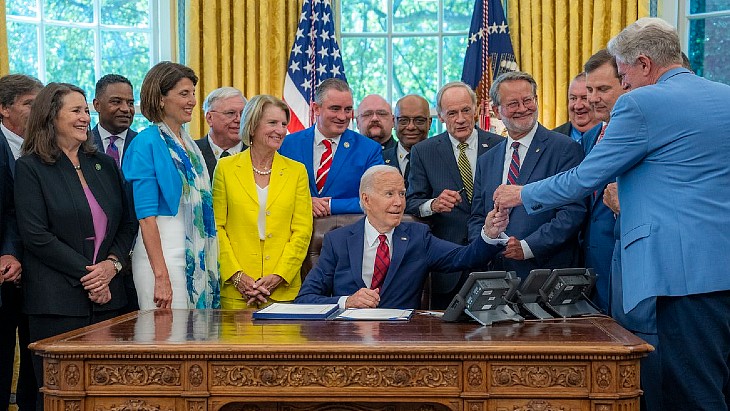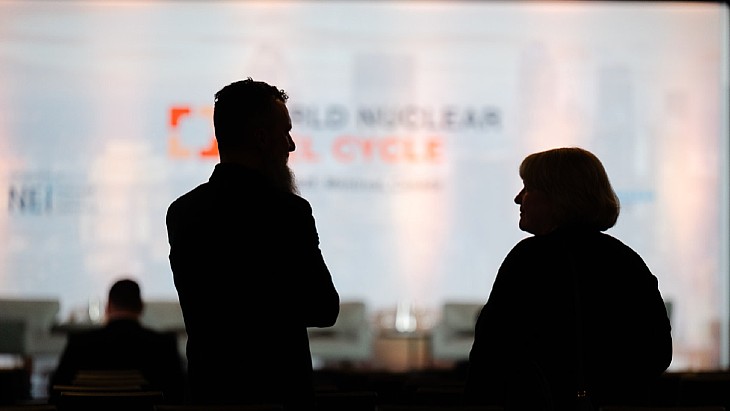Increased urgency for IAEA mission to Zaporizhzhia following shelling
International Atomic Energy Agency Director General Rafael Mariano Grossi says its staff's presence at the Zaporizhzhia nuclear power plant in Ukraine is needed to help stabilise the nuclear safety and security situation.
_730.jpg)
Grossi's appeals came after shells hit parts of the nuclear power plant site on Friday. The shelling did not damage the reactors themselves, but the State Nuclear Regulatory Inspectorate of Ukraine said that the nitrogen-oxygen station and the combined auxiliary building were damaged. A high voltage power line was also damaged.
As a result, diesel generators were activated at one of the power units, which was disconnected from the power grid. Nuclear power plant operator Energoatom added that three radiation monitoring sensors were also damaged and said an area of 800 square metres was damaged near to the dry used nuclear fuel storage facility.
Zaporizhzhia has six reactors, making it the largest nuclear power plant in Europe. It has been under the control of Russian forces since the start of March, although it continues to be operated by its Ukrainian staff, and it continues to supply power to Ukraine. Most recently it had typically had three units operating.
The IAEA has been seeking to send a mission to the plant for months, but has not yet been able to, after failing to get the agreement of the two sides. Ukraine has said there cannot be an IAEA mission while the nuclear power plant is under Russian military control, and says that the best way to ensure nuclear safety is for the Russians to withdraw and return it to Ukrainian control.
Grossi, who outlined his seven indispensable pillars of nuclear safety early on in the conflict, said several pillars had been violated on Friday, adding: "This must stop and stop now."
"In order to help prevent the situation from spiralling even more out of control, the IAEA’s presence to provide technical support for nuclear safety and security is of paramount importance.
"Since the beginning of this tragic war, the IAEA - and I personally - has been working on supporting Ukraine in keeping all its nuclear facilities safe and secure.
"And for the last four months now, I have been ready to lead a mission of IAEA safety, security and safeguards experts to the country’s biggest nuclear power plant, Zaporizhzia.
"This mission would play a crucial role in helping to stabilise the nuclear safety and security situation there, as we have at the Chernobyl nuclear power plant and elsewhere in Ukraine in recent months where we have also delivered nuclear safety and security equipment that is urgently needed.
"At the same time, IAEA safeguards inspectors would conduct essential verification activities at the plant. We would also provide impartial and independent information about the status of the Zaporizhzhia facility.
"That this vital mission has not yet happened is not because of the IAEA. Despite our determined efforts, it has not been possible, so far.
"I will not give up. I will continue to push - and push again - for this IAEA mission to finally take place.
"But this will need the cooperation, understanding and facilitation from both Ukraine and Russia.
"We will also need the United Nations to support us, and I’m very grateful for the steadfast support of UN Secretary General António Guterres."
UN chief Guterres echoed the call for IAEA inspectors to be given access to the plant, adding that "any attack on a nuclear plant is a suicidal thing".
Both sides blame the other for the shelling. Ukrainian President Volodymyr Zelensky accused Russia of being a "terrorist state" which had "fired at a nuclear plant", while the Russian embassy in the USA said "the shelling of Zaporizhzhia by the Ukrainian armed formations is deliberate ... in order to discredit Russia".
In his statement, Grossi added: "We can’t afford to lose any more time … we must all set aside our differences and act, now."










_50521.jpg)

